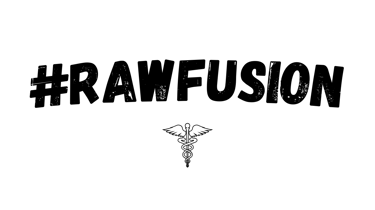The Ultimate Protein Myth: Why You Don’t Need Meat to Build Muscle
The foundation of muscle growth isn’t meat—it’s amino acids...
Kobbii Nyarko
5/12/20254 min read


For decades, mainstream nutrition has told us the same story: if you want to build muscle, stay strong, and be healthy, you need to eat meat. Chicken, beef, eggs—these have been treated like the holy grail of fitness nutrition. But what if that entire idea is built on a myth? What if you don’t need to consume animals to thrive, build muscle, or even survive as a human being?
Let’s break down the science, the nutrition, and the deeper implications of the meat-based protein myth—and explore how a plant-powered life might just be the better path forward.
Muscle Isn’t Built From Meat — It’s Built From Amino Acids
The foundation of muscle growth isn’t meat—it’s amino acids. These are the building blocks your body uses to repair and grow muscle tissue. Of the 20 amino acids your body uses, 9 are considered essential—meaning your body can’t produce them on its own, and you must get them from food.
Here’s where the myth usually begins: many assume that only animal products contain “complete proteins”—those with all 9 essential amino acids. But that’s simply not true.
Plant-based foods can absolutely provide all essential amino acids. In fact, many plant sources already do:
Quinoa – a complete protein with all 9 essential amino acids.
Hemp & Chia Seeds – some of the most protein-rich and complete plant foods.
Buckwheat and Amaranth – high-nutrient complete proteins
Even combinations like rice and beans, hummus and pita, or lentils and oats give your body everything it needs to build strong, healthy muscle.
Plant Protein is More Than Just Protein
While meat may deliver protein, it also comes with things your body doesn’t need: saturated fat, cholesterol, and often harmful additives. On the other hand, plants give you protein plus a bonus—fiber, vitamins, minerals, antioxidants, and anti-inflammatory compounds.
Let’s take a closer look:
Lentils: 18g of protein per cooked cup, plus fiber, iron, and B vitamins.
Black beans: Loaded with protein, plus magnesium, potassium, and folate.
Oats: A great source of protein, especially when combined with nuts or seeds.
Spinach: Surprisingly protein-rich, with the added power of chlorophyll, iron, and vitamin C.
Unlike meat, these foods support digestion, lower inflammation, and promote heart health. They fuel your body without taxing it.
When You Eat Meat, You're Eating Death. When You Eat Plants, You're Eating Life.
Let’s look beyond just nutrients and zoom out to the energy and vitality behind the food we eat.
When you consume animals, you are eating dead tissue—flesh that has undergone decay, often preserved with chemicals or subjected to high-heat cooking methods that generate harmful compounds. While humans have adapted to eating cooked meat, it’s not our natural state. Most of us can’t eat raw meat safely without the risk of illness or parasites. We have to season it, cook it, flavor it, and still it may come with side effects if consumed too often.
On the other hand, when you eat plant-based foods, you’re eating living energy—foods that grow from the earth, powered by sunlight, water, and minerals. Plants carry electrical impulses and bioactive compounds that interact with our cells in profound ways. This life energy manifests within us, often leading to increased vitality, clarity, and well-being.
Conversely, when we consume meat, especially from animals raised in confined, stressful environments, we’re also consuming the energetic imprint of death and suffering—a subtle, but impactful aspect of food that many people can feel once they remove animal products from their diet.
The Long-Term Health Consequences of Meat Consumption
Many people defend meat by saying, “Well, humans have always eaten it.” But what’s often ignored is how much meat we eat today, and how processed and industrialised the 'meat-farming' industry has become.
Overconsumption of meat—especially red and processed meats—has been linked to numerous chronic diseases:
Cardiovascular Disease: Saturated fats and cholesterol from animal products contribute to arterial plaque and heart disease.
Cancer: The World Health Organization has classified processed meat as a Group 1 carcinogen, and red meat as a probable carcinogen.
Type 2 Diabetes: Studies show that diets high in animal fat and protein are associated with higher risk of insulin resistance.
Autoimmune & Inflammatory Conditions: A meat-heavy diet can lead to chronic inflammation, which underpins diseases like arthritis, lupus, and even certain allergies.
Contrast that with plant-based diets, which are consistently associated with:
Lower risk of heart disease
Healthier body weight
Improved digestion and gut health
Reduced inflammation
Longer life expectancy
So, Do You Need Meat to Build Muscle? Absolutely Not.
Building muscle comes down to three key factors:
Adequate total protein intake
Consistent strength/resistance training
Recovery and rest
None of these require animal products.
As long as you’re eating enough, combining various plant-based protein sources, and challenging your body with proper training, you can absolutely thrive—physically, mentally, and spiritually—on a plant-based diet.
Need proof? Look no further than elite vegan athletes like:
Nimai Delgado – IFBB pro bodybuilder who’s never eaten meat in his life.
Patrik Baboumian – Record-breaking vegan strongman.
Venus Williams – Tennis legend and plant-based advocate.
Scott Jurek – Ultramarathoner powered by plants.
These individuals aren’t just surviving without meat—they’re thriving.
Conclusion: You Don’t Need Meat — You Need Smart Nutrition
The protein myth has deep roots in tradition, industry marketing, and cultural habits. But science, health outcomes, and lived experience all tell a different story.
You don’t need meat to be strong. You don’t need chicken to build muscle. You don’t need animal products to live a vibrant, energetic life.
What you do need is smart nutrition—whole, plant-based foods that fuel your body with clean, efficient energy. Nutrition that honors your health, respects other living beings, and supports the planet we all share.
So next time someone asks, “Where do you get your protein?”—smile, and let them know:
“From the same place your protein does—plants.”
